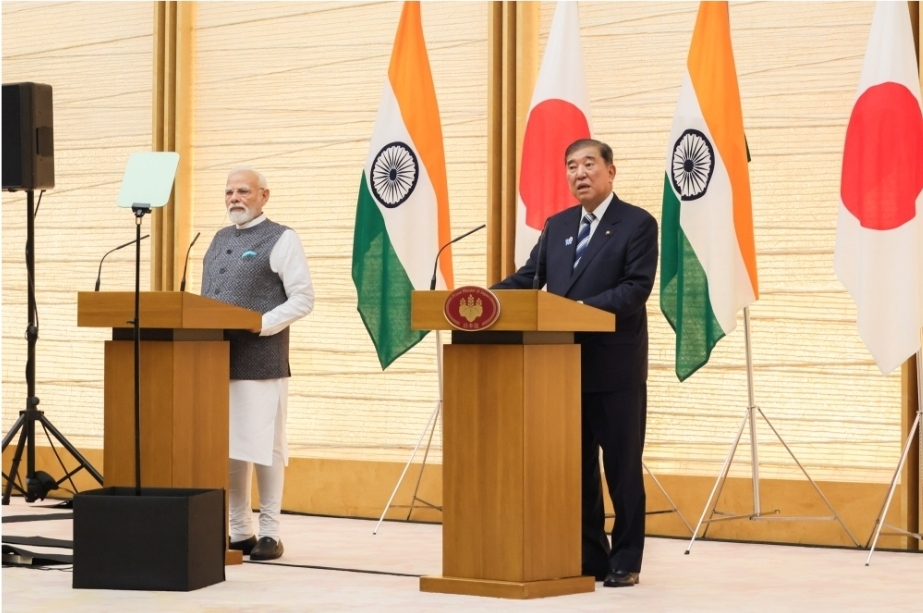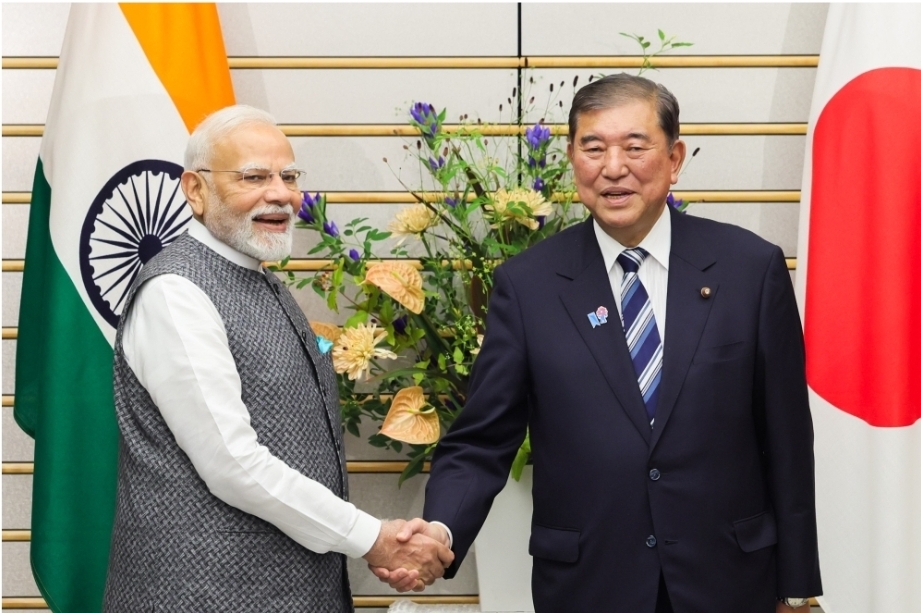India and Japan have just written the latest chapter in their remarkable partnership, with the 15th Annual Summit signaling a series of transformative agreements that go far beyond the usual diplomatic platitudes. Whether you run a multinational supply chain, manage civic technology teams, or simply care about global stability, the lessons and implications for customer experience (CX) and business resilience are not to be overlooked. Let’s unpack what happened—and why this matters for everyone navigating the new global economy.
Partnership Power: Turning Shared Vision Into Action
India and Japan are not merely neighbors on the Asia map—they hold a shared set of values as vibrant democracies, making them natural partners for addressing the big challenges of our time. Their partnership, known formally as the Special Strategic and Global Partnership, is rooted in mutual trust and an ongoing commitment to shaping global peace, stability, and prosperity.
This year’s summit in Tokyo marked a turning point. The leaders agreed on a bold roadmap for the next decade, aimed at doubling Japan’s investment in India to a massive 10 trillion yen ($68 billion) spread across digital, defence, minerals, trade, and space exploration.
Economic Security Initiative: Building Resilient Supply Chains
No modern business can escape the reality of supply chain shocks—from pandemics, wars, and tariffs to cyber threats and mineral shortages. The India-Japan Economic Security Initiative is designed to tackle these very issues.
What’s new? The initiative brings together strategic sectors like semiconductors, pharmaceuticals, critical minerals, telecommunications, and clean energy, with a laser focus on building resilient supply chains that can withstand global disruption.
For CX leaders, this translates into greater product reliability, reduced service interruptions, and ultimately, more trustworthy brands. Imagine sourcing critical minerals no longer held hostage by bottlenecks and monopolies. Your business operations become steadier, and customers feel safer placing their trust—and their money—with providers who can guarantee delivery.
10 Trillion Yen Investment: Deepening Connections Across Every Touchpoint
The investment commitment is not just about numbers—it’s about transforming customer and business experiences on both sides. Japan’s 10 trillion yen pledge over the next decade covers everything from capital goods and technology to small businesses and innovation.
Japanese companies are expanding supply chains in India, creating new jobs, and fueling local innovation. Small and medium enterprises (SMEs), along with startups, will benefit most from this influx, as both governments specifically aim to connect SME ecosystems and encourage ‘Make in India, Make for the World’.
If you lead an enterprise in India, expect dramatically improved access to Japanese tech, expertise, and funding. If you’re a Japanese consumer, this move brings more Indian innovations into your daily life. CX professionals can anticipate more frictionless cross-border transactions and a richer set of product choices for their customers.
Defence and Security Cooperation: Keeping the Region Safe
Security is a key pillar of CX—no customer feels comfortable with risk lurking behind every transaction. India and Japan have adopted a Joint Declaration on Security Cooperation, updating their previous 2008 agreement for modern challenges. This expanded framework creates direct, institutionalized dialogues between both nations’ National Security Advisors for the first time.
The new military pact means more joint exercises between the army, navy, and air force, plus advanced technology-sharing and equipment co-development. For example, the co-development of the UNICORN radio antenna system for Indian Navy ships shows how deep technical collaboration is becoming the norm.
Cybersecurity, disaster relief, counter-terrorism, and chemical-biological-radiological defense all receive special spotlight. Businesses operating in the Indo-Pacific now have more reliable protections and support. This reduces risks for data centers, tech platforms, and infrastructure providers—improving service reliability and brand reputation for their customers.
Minerals Pact: Securing Strategic Resources for a Green Future
Clean energy transitions and technology manufacturing all depend on secure access to critical minerals and rare earth elements. At the summit, India and Japan signed a new mining sector agreement with a strong focus on diversifying and securing these supply chains.
This pact bolsters joint investments in exploration, mining, and processing. Not just within India, but also in third countries known for mineral wealth. For CX leaders in manufacturing, clean tech, or automotive sectors, this agreement means great. Future growth won’t be held back by resource shortages. Customers benefit from more affordable, sustainable, and reliable products.
Space and Technology Partnerships: Charting New Frontiers for Innovation
Space might seem distant, but its impacts on navigation, weather prediction, and global connectivity seep into every business and consumer experience. India and Japan’s collaboration is going interplanetary—literally. The ISRO and JAXA are teaming up for the Chandrayaan-5 lunar mission. JAXA will supply the advanced rover, which will seek water ice on the moon and kickstart the next wave of lunar resource utilization.
This partnership aims not just at government programs but also startups and entrepreneurs in both countries. Cross-border synergies in satellite communications, AI, and deep space research create opportunities for new services, better smartphone coverage, and more reliable logistics for everyday businesses.
Additionally, the Digital Partnership 2.0 and Japan-India AI Cooperation Initiative will foster collaboration on semiconductors, artificial intelligence governance, and data center innovation. This keeps CX ahead of tech curves, with smarter, safer, more flexible digital offerings to end-users.
Human Resource Exchange: Expanding Talent Mobility and Skilled Workforce
Customers require skilled support and innovative solutions. The summit’s mobility partnership aims to allow 500,000 professionals to move between both countries over the next five years, with 50,000 skilled Indian workers heading to Japan. This opens up fresh opportunities for globally minded organizations to staff their customer-facing teams with multicultural talent—resulting in richer experiences and broadened perspectives.
Tech transfer and talent exchange mean Indian companies can more easily adopt world-class Japanese standards in manufacturing or customer service, while Japanese companies can leverage India’s growing tech expertise.
Analytical Deep Dive: CX Implications and Global Ramifications
Now, let’s pivot from the perky partnership news to analyze what really matters for modern customer experience, business resilience, and strategic agility.
Supply Chain Stability and CX Trust
The Economic Security Initiative directly addresses today’s biggest business pain points. Whether it’s chip shortages for smartphones, interruptions in medical supply delivery, or cybersecurity threats disrupting online banking, the joint India-Japan approach mitigates these through diversified, protected, and forward-thinking supply chains.
Businesses that source components more reliably create smoother customer journeys. Less disruption means fewer broken promises and higher satisfaction. Ultimately, CX becomes a strategic differentiator rooted in trust.
Investment = Innovation and Opportunity
The scale of Japan’s investment—$68 billion—signals profound confidence in India’s market dynamism. By strengthening SME and startup ecosystems, the bilateral flow of capital will accelerate new product launches and personalized customer touchpoints.
For CX strategists, this means that collaborative service design, co-created supply chains, and blended cross-border experiences will become the new norm. Customers in both countries will increasingly access best-in-class technology, medical devices, and clean automotive solutions designed through India-Japan joint ventures.
Secure, Reliable Services in a Risky World
Greater military and security integration protects the environment. Especially in which global business is conducted. Advanced data security, counter-terrorism collaboration, and robust cyber defense give customers greater peace of mind. Brand promises carry heavier weight when backed by national security commitments.
Regular military joint exercises and intelligence sharing reduce the threat of unexpected disruption. These are critical for supply chains supporting just-in-time manufacturing and high-trust ecommerce experiences.
Mineral Security Unlocks Clean Tech
Customer experience increasingly hinges on sustainable practices. The minerals pact ensures that Indian and Japanese companies can pivot toward clean energy and advanced manufacturing. That too with fewer material bottlenecks. For customers, this means greener, smarter products arriving on time, every time.
Space, AI, and Digital Innovation: CX at the Frontiers
Cross-border space exploration, artificial intelligence alliances, and next-gen digital infrastructure, are the key focus areas. India and Japan are laying the groundwork for innovative customer solutions. CX leaders need to focus on satellite-enabled agricultural services to AI-driven healthcare and smarter transport. They will find new tools to personalize and predict consumer needs.
Capacities built into lunar missions feed back into everyday tech by improving GPS accuracy, global communications, and environmental monitoring.

Closing Thoughts: Why This Summit Matters for Everyone
Ultimately, the 2025 India-Japan Summit is not a distant diplomatic show. It’s a set of practical steps that will create frictionless, delightful customer experiences. It will also streamline business operations, and harden critical infrastructure against future risks. The deep commitment to investment, secure supply chains, tech innovation, and talent exchange means a lot. It means that anyone doing business—or even living—in the Indo-Pacific region will benefit.
Transitioning from conversation to analytical insights, these agreements set a template for other nations seeking resilient, customer-focused partnerships. For CX practitioners, staying attuned to such bilateral initiatives will prove essential. Especially, when planning new customer journeys, crisis response strategies, or long-term market innovations. Change is always just around the corner. But with India and Japan leading the way, it feels like a much smoother, safer, and promising ride for all.

